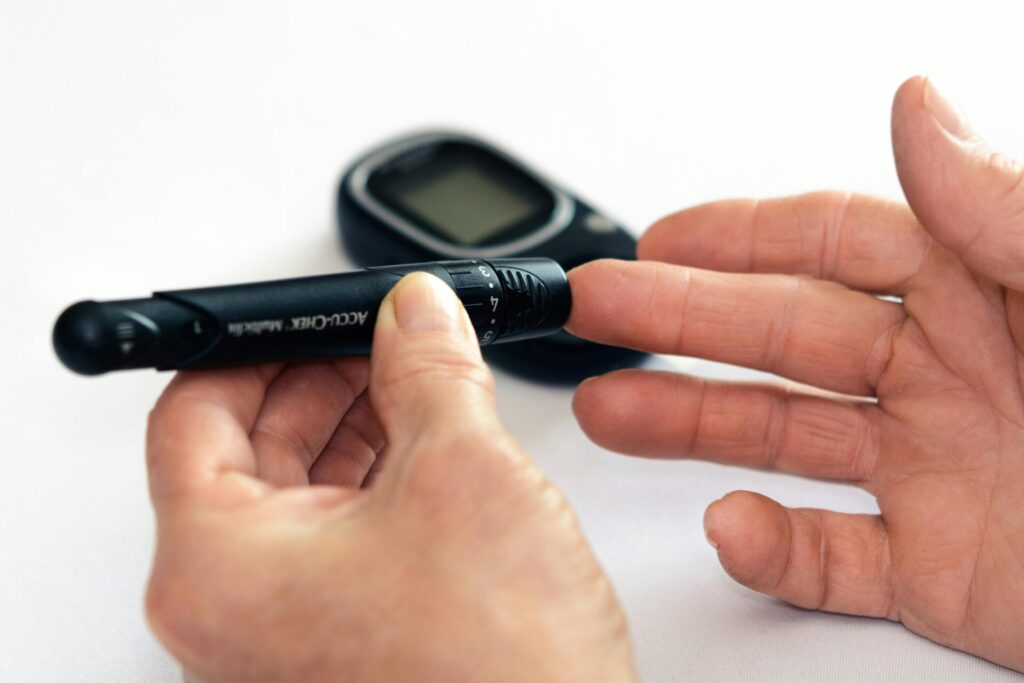
Vy Tran is a dedicated fourth-year nursing student. She is passionate about nursing and her dream is to become an Emergency RN to gain valuable experience in high-pressure situations. Beyond the walls, Vy finds joy in her dog and empowering others. Vy is excited to merge her love for care and teaching as she embarks on this fulfilling journey in the world of nursing!
In a previous post, we learned what diabetes is, the different types, risk factors and treatment options. But you might be wondering if there are any tips and tricks to help manage diabetes with a busy student schedule. I caught up with York’s Public Health Nurses Ayan Wehliye and Simran Kharod, who shared some tips to help navigate university life while managing diabetes effectively.
1. Prep a diabetes care kit
Keep a fast-acting snack on you, like glucose tablets or a granola bar, to quickly raise your blood sugar if it drops unexpectedly. Have your insulin or medication on hand, even when you’re on campus or attending classes. Being equipped with these essentials can provide a sense of security and help you manage any sudden changes in your blood sugar levels.
2. Inform others
Let your friends, roommates, resident advisors, and professors know that you have diabetes, what signs and symptoms to look for when your blood sugar is high and low and how they can help you.
3. Connect with Student Accessibility Services
Connect with Student Accessibility Services about any academic accommodations, if needed.
4. Prioritize moving your body
Regular physical activity is important for managing blood sugar levels and overall well-being. Find an exercise routine that suits your schedule and preferences, whether it’s a brisk walk, yoga or a sport you enjoy!
Pro tip: York students have access to a free recreation membership at the Tait McKenzie Centre, with additional access to a fitness membership for $25 per year. More information can be found on the Athletics and Recreation website.
Develop a healthy eating routine
Ensure you are eating healthy and well-balanced meals. University life can get super busy, so meal planning is a great way to make sure you are meeting your dietary needs, even with a hectic schedule.
Pro Tip: Check out York’s FUEL cookbook for a variety of delicious and healthy recipes!
6. Understand the impact of alcohol on diabetes
Drinking alcohol can increase the risk of low blood sugar. Talk to your doctor about your alcohol intake and ensure you are regularly monitoring your blood sugar levels, eating consistently and taking your medication as prescribed.
7. Effective medication management
Stay disciplined with your medication schedule and always keep necessary supplies with you. It’s important to always have your medication and monitoring tools on hand, especially during long days at school or study sessions, just in case.
8. Monitor blood sugar levels
One of the best ways to stay in control of your health is to consistently monitor your blood sugar levels. During demanding periods like exams or busy academic terms, pay special attention to your glucose levels to prevent any disruptions to your studies.
9. Manage stress effectively
Did you know that stress can significantly impact your blood sugar levels too? Prioritize healthy stress management techniques such as mindfulness, meditation or yoga to help keep stress levels in check.
Pro tip: York’s Health Education and Promotion team often holds personal health and well-being workshops where you can connect with other students and learn more about topics related to your physical and mental health.
10. Make a list of emergency contacts
Make sure you have a list of emergency contacts on hand. Inform your roommates, friends and professors of these contacts in the event of an emergency.


